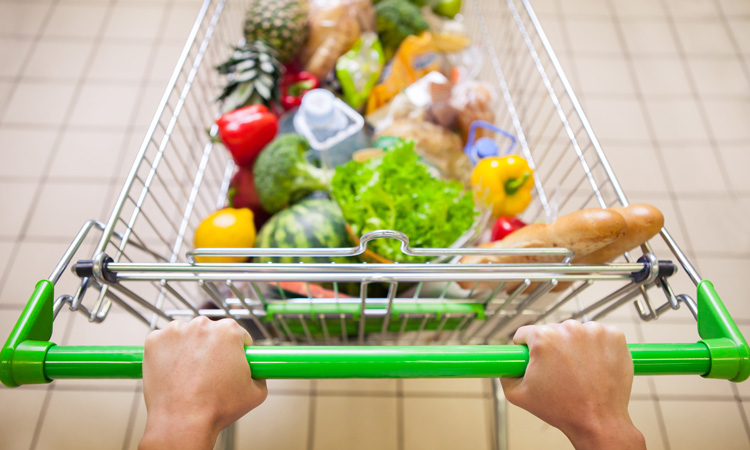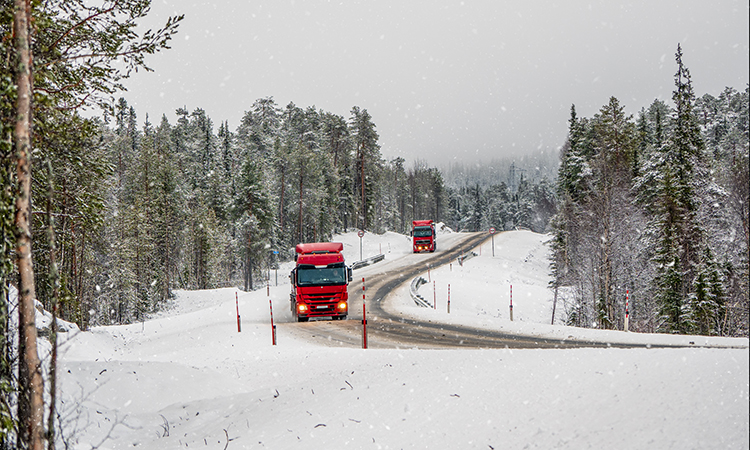Magnit CEO talks sustainable logistics and recycled carbon dioxide
- Like
- Digg
- Del
- Tumblr
- VKontakte
- Buffer
- Love This
- Odnoklassniki
- Meneame
- Blogger
- Amazon
- Yahoo Mail
- Gmail
- AOL
- Newsvine
- HackerNews
- Evernote
- MySpace
- Mail.ru
- Viadeo
- Line
- Comments
- Yummly
- SMS
- Viber
- Telegram
- Subscribe
- Skype
- Facebook Messenger
- Kakao
- LiveJournal
- Yammer
- Edgar
- Fintel
- Mix
- Instapaper
- Copy Link
Posted: 28 December 2020 | Jan Dunning | No comments yet
Magnit CEO Jan Dunning explains why sustainability is not easy in Russia, and reveals the innovative green projects his company is undertaking.


Jan Dunning, CEO of Russian retailer Magnit, talks to New Food about the challenges of implementing sustainable policies in the world’s coldest and vastest country. Here, he reveals the simple yet innovative science behind the company’s latest green project, as well as the similarities and differences in attitudes between Russians and the rest of the world when it comes to sustainability.
Q: Who is Magnit?
Magnit is Russia’s largest retailer in terms of both the number of stores and reach across the country. We operate almost 21,000 shops, serving 16 million customers every day across supermarkets, convenience stores, drugstores and pharmacies. Our cross-format loyalty programme serves about 39 million people, close to a quarter of the country’s population.
Magnit is not only a leading retailer, but also one of Russia’s major food producers. The company manages several sites for growing vegetables and producing dry food and confectionery. This part of the business produces more than 200,000 tons of product every year and includes one of Russia’s largest complexes for growing mushrooms.
Q: What work is Magnit doing to improve sustainability within the business?
Earlier this year, we launched our strategy to become Russia’s number one sustainable retailer with a series of commitments to be reached by 2025. These include making sure 100 percent of plastics in our own operations are recovered and recycled, reducing food waste by 50 percent. Also, ensuring half of all private label and own production packaging is recyclable, reusable or compostable.
We are also working towards a 30 percent reduction in greenhouse gas emissions and aiming to reduce our water and energy consumption by a quarter. Our aim is for 100 percent responsible sourcing across our most important product categories and to ensure all our own agriculture operations are being responsibly managed.
Some of our most impactful work to date has focused on our logistics. As a business that operates almost 5,000 trucks across the world’s largest country, shifting the way we get goods from A to B can dramatically change our impact on the planet.
This year, we introduced Russia’s first electric truck, developed in collaboration with Drive Electro. Provided our trial goes as expected, up to 200 of these vehicles will be used to deliver fresh food to our stores. We are also converting 250 of our vehicles to Compressed Natural Gas (CNG), which will provide a lower carbon option for journeys that are beyond the range of an electric vehicle.
On top of this, we became the first Russian retail chain to start utilising reusable transport container pooling, saving around 12,000 trees every year just through reuse of pallets.
Q: Is Russia particularly innovative when it comes to sustainability, compared to other areas of the world?
Operating in the largest and coldest country in the world, we experience unique challenges to sustainable transformation. However, emissions created anywhere on the planet have the same global effect and Russian companies are rightly held to the same standards as their international peers.
This dynamic of equal expectations, despite elevated challenges, is a driver for innovation. With freezing temperatures driving up energy use and huge distances increasing transport emissions, Russian companies cannot simply follow the strategies of their western counterparts. They must go further and pursue more creative solutions.
For example, this dynamic prompted Magnit to look at the boilers we needed to heat our greenhouse and explore ways we could recycle the CO2 as fertilisers. This has helped us produce vegetables that are both better for the environment and more efficient to grow.


Logistics in Russia can be difficult at the best of times…
Q: How does it work? What is the science behind it?
The process is intuitive. Plants require CO2 for photosynthesis, so when you enrich the greenhouse environment with additional carbon, they naturally absorb it for growth. We have found this approach encourages more active blossoming among the plants we grow, while making them more resistant to diseases and pests.
The implemented technology works as follows: exhaust gas from the boilers is cooled down using an economiser and then pumped through the ducts to the blower fan. The CO2 exhaust is then fed to every greenhouse via underground pipes. The qualitative and quantitative composition of CO2 is managed by an automatic climate control system, which decreases the workload. The system identifies the amount of gas required for proper photosynthesis and plant growth and distributes this amount throughout the entire greenhouse.
Q: Can you explain the progress it has made so far and its ultimate goal?
As a fertiliser, the recycled CO2 has outperformed what we would usually see from mineral alternatives. We have seen crop yields in the greenhouses where the system is in place increase by 15 percent. At the same time, emissions for these facilities have fallen by up to 18 percent – this is the equivalent of planting over 165,000 trees per year over an area the size of 420 football pitches. In fact, the pilots of this technology have been so successful that we consider it a standard part of any new greenhouse complexes.
Q: What are the biggest challenges you face?
Beyond the geography of Russia (its size and temperatures), one of the greatest challenges we face is bridging the gap between intention and action when it comes to sustainable consumption.
Around 44 percent of Russians say they feel guilty when they do something that harms the environment – a figure broadly in line with what we see around the rest of the world. However, while globally 34 percent of people claim they try to do their best for the whole planet, just nine percent of Russians say the same.
Our role in overcoming this is two-fold. Firstly, we need to use the engagement we have with consumers each day to inform them not just about why sustainability matters, but how they can easily integrate small, green choices into their daily lives. The next stage is ensuring we provide them with fresh, healthy and sustainable produce that makes the green choice a simple choice, by showing there is no compromise between quality and sustainability.
Q: What’s next?
One of our most important workstreams is engaging with local growers and producers to help them scale up their operations. This can help us ensure we not only have the freshest produce in our stores – which is what our customers want to buy – but that these goods do not need to travel thousands of kilometres to get to the shelves.
We are also taking a leading role on reducing plastic packaging waste in Russia. This year we have partnered with Procter & Gamble to roll out Russia’s largest non-state network of reverse vending machines. The 80 machines commissioned as part of the project will be hitting our stores between now and 2021, and should collect around 16 tons of plastic for processing.
I hope in the future we can leverage similar partnerships to bring a true impetus to sustainability efforts in Russia. We joined the UN Global Compact in October and will be engaging with fellow members to bring global expertise and widespread collaboration to a part of the world that is just at the beginning of its sustainability journey.
About the author
Jan Dunning is the CEO of Magnit, Russia’s largest retailer.
Related topics
Environment, Food Waste, Packaging & Labelling, Research & development, retail, Supermarket, Supply chain, Sustainability, Technology & Innovation









